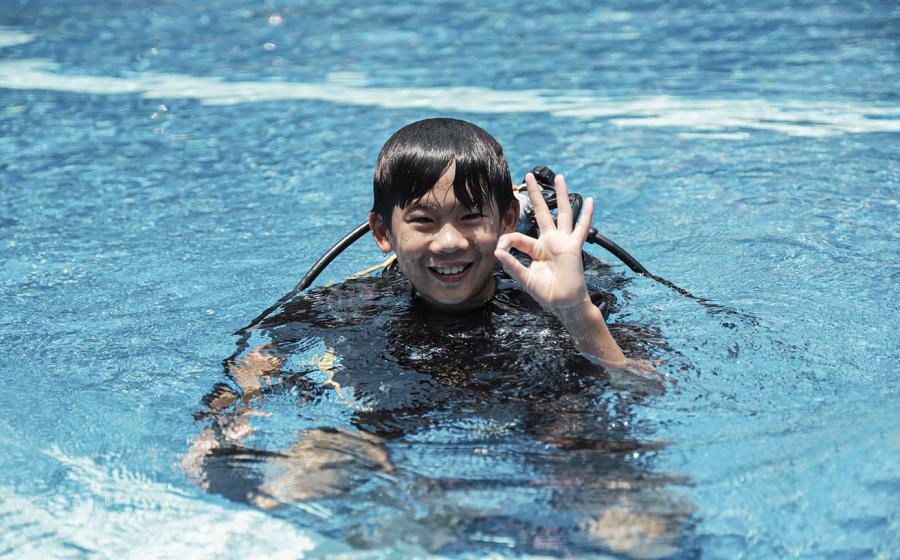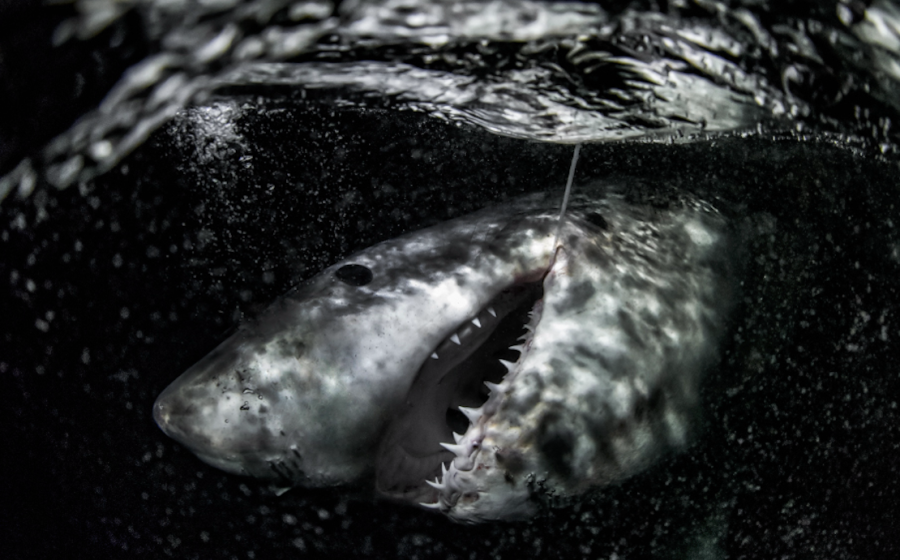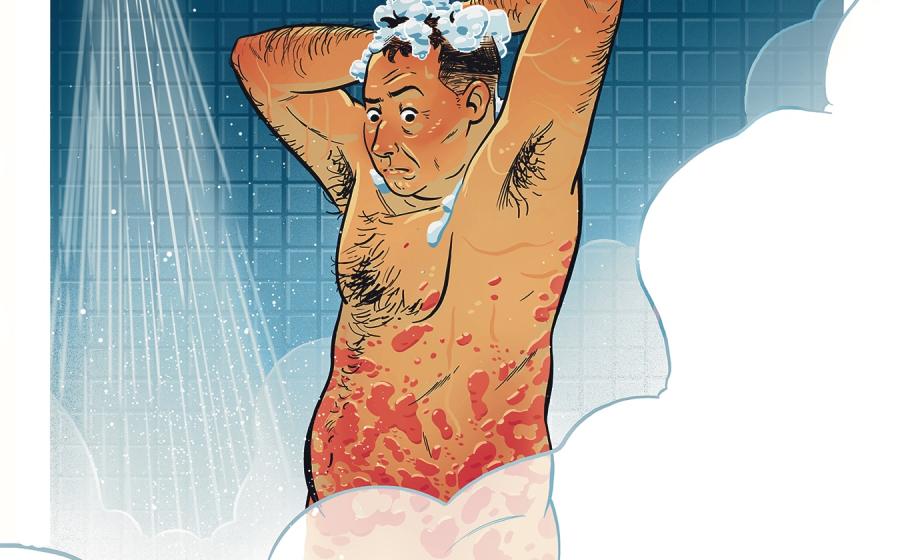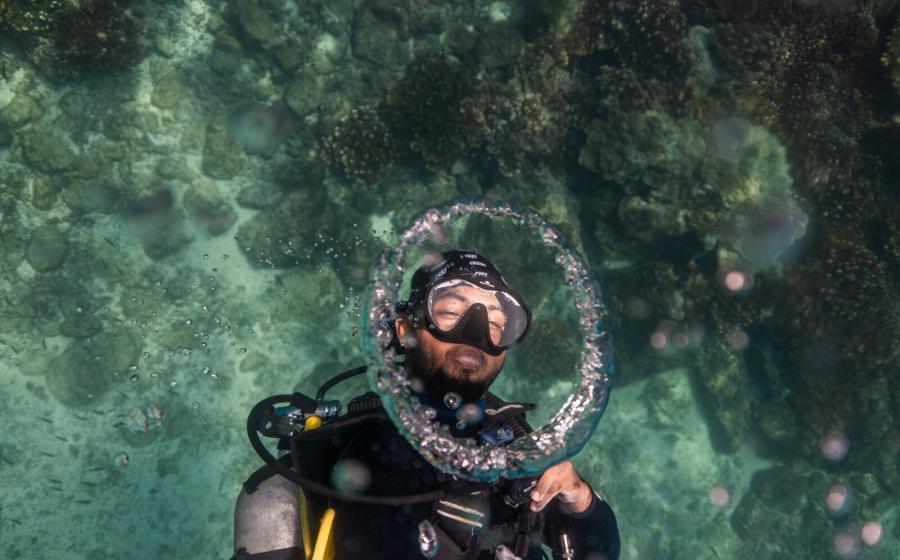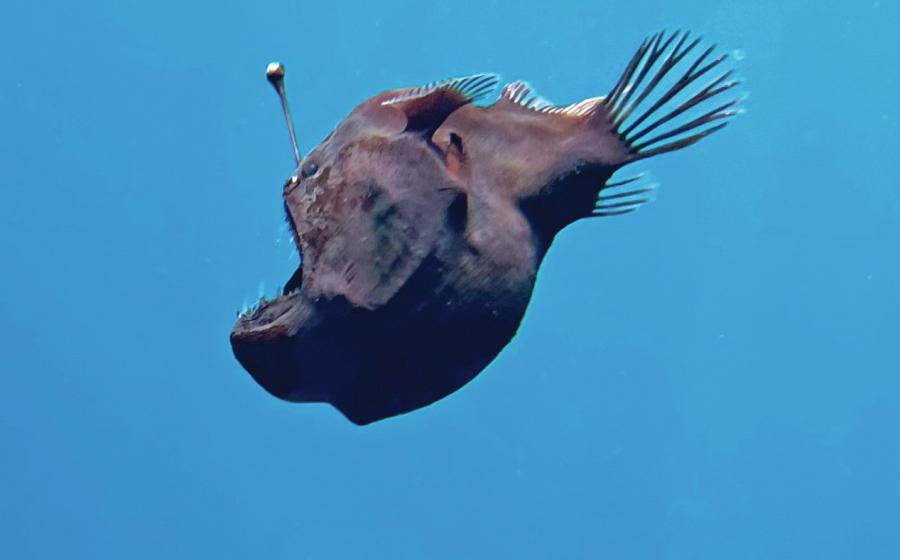Drink Up
March 2005
By Selene Yeager
Hot sun. Cool seas. Sweet sangria. Strong coffee. There may be foamy blue liquid everywhere you look, but once you hit your dive destination, you can wave good-bye to the water--your own, that is. All the delights of tropical diving can leave you as dry as an apricot slice in the sun.
Dehydration during diving isn't just unpleasant, it can be downright dangerous. "For every pound of sweat you lose, your heart rate increases about eight beats per minute, your cardiac output, or how much blood your heart pumps out, declines one liter per minute, and your body's core temperature inches up about half a degree," says Molly Kimball, sports and lifestyle nutritionist at Ochsner Clinic's Elmwood Fitness Center in New Orleans. Less blood volume equals less blood flow to your muscles and tissues. You'll not only tire more quickly, but you'll clear nitrogen more slowly, raising your risk for decompression sickness.
Dehydration also makes you dumb, says Bob Moon, a Denver-based biologist who has conducted dehydration research for the U.S. military. "I've seen professional navigators lose the ability to perform basic map skills at five to six percent dehydration; and once mental capacity goes, panic creeps in," he says. Though your water levels aren't likely to dip that low, a day of sweating in the sun after a night of sipping mai tais can easily leave you down one to three percent.
Water, Water Everywhere
Scuba diving sucks fluid from your body in almost every way imaginable. For starters, the moisture has been removed from the air in your scuba tanks to protect your equipment from corrosion. So each time you inhale a puff of arid air off your regulator, you lose twice as much moisture from your throat and lungs as you do during normal breathing.
Submerging yourself in the marine environment creates a condition called immersion diuresis--otherwise known as the urge to urinate. Immersion, especially in water that is colder than the air, causes narrowing of the blood vessels in your arms and legs, sending more blood back to the core of your body. Your body registers this rush of blood into the central body as a fluid overload, so the kidneys crank up their urine production to siphon out the excess.
Finally, the exertion of diving is drying. Sweating and panting as you haul heavy gear, suit up in the hot afternoon sun and fin against currents can easily leach away a couple pints of fluid during the course of a dive.
Liquid Assets
The most obvious way to stay well-hydrated is to drink early and often. Some divers intentionally avoid drinking too much for fear of having to pee in their wetsuits as soon as they hit the water. But intentionally dehydrating yourself is dangerous. Peeing in the ocean is not, especially if you're well-hydrated and your urine is fairly dilute anyway.
Aim to drink at least half your body weight in ounces--that's eight cups a day for a 130-pound woman and 10 for a 160-pound man--on the days leading up to your dive," says Kimball, who recommends including sports drinks since they also replace electrolytes lost during sweating. You know you're drinking enough when you're urinating often and your pee runs clear, she says. Other ways to hold your water:
Go easy on the alcohol >
Alcohol is a diuretic that suppresses the release of a hormone that helps your body retain fluids. Though a drink or two the night before is likely OK, be on the safe side and have a glass of water along with each alcoholic beverage, and turn off the tap after two drinks.
Cool the caffeine >
Caffeine isn't the diuretic demon it's long been accused of being, but it does encourage some fluid loss, so it's smart not to overdo it. Stick to one cup the morning of a dive.
Stay warm >
Being cold makes you pee more. The more you pee, the more water you lose. Wear a hood when the water is chilly. Onboard the boat, bundle up in a fleece and pull on a hat.
Say yes to carbs >
Skip the steak and eggs the morning of your dive. Protein-heavy foods require more energy and water to digest than they contribute. Carbohydrates, like oatmeal, cereal and whole grain breads, use less digestive energy and help your body retain fluids.
Shade your skin >
It's no secret the sun sucks moisture. Protect yourself from the drying effects of the sun and wind by staying in the shade, when possible, and wearing light, loose clothing and a wide-brimmed hat.
Pick juicy fruits >
When fueling up before a dive, include lots of high-water foods like oranges, melons and other tropical fruits.
Replace your electrolytes >
A bout of seasickness and traveler's trots can leave your water levels dangerously low. If you've been under the weather with either, be sure to replace your electrolytes--essential minerals that your body needs to function properly. "A sports drink like Gatorade is one good way to replace sodium and other electrolytes," says Kimball. "Or if none is available, diluted fruit juice can work, too."
March 2005
By Selene Yeager
Hot sun. Cool seas. Sweet sangria. Strong coffee. There may be foamy blue liquid everywhere you look, but once you hit your dive destination, you can wave good-bye to the water--your own, that is. All the delights of tropical diving can leave you as dry as an apricot slice in the sun.
Dehydration during diving isn't just unpleasant, it can be downright dangerous. "For every pound of sweat you lose, your heart rate increases about eight beats per minute, your cardiac output, or how much blood your heart pumps out, declines one liter per minute, and your body's core temperature inches up about half a degree," says Molly Kimball, sports and lifestyle nutritionist at Ochsner Clinic's Elmwood Fitness Center in New Orleans. Less blood volume equals less blood flow to your muscles and tissues. You'll not only tire more quickly, but you'll clear nitrogen more slowly, raising your risk for decompression sickness.
Dehydration also makes you dumb, says Bob Moon, a Denver-based biologist who has conducted dehydration research for the U.S. military. "I've seen professional navigators lose the ability to perform basic map skills at five to six percent dehydration; and once mental capacity goes, panic creeps in," he says. Though your water levels aren't likely to dip that low, a day of sweating in the sun after a night of sipping mai tais can easily leave you down one to three percent.
Water, Water Everywhere
Scuba diving sucks fluid from your body in almost every way imaginable. For starters, the moisture has been removed from the air in your scuba tanks to protect your equipment from corrosion. So each time you inhale a puff of arid air off your regulator, you lose twice as much moisture from your throat and lungs as you do during normal breathing.
Submerging yourself in the marine environment creates a condition called immersion diuresis--otherwise known as the urge to urinate. Immersion, especially in water that is colder than the air, causes narrowing of the blood vessels in your arms and legs, sending more blood back to the core of your body. Your body registers this rush of blood into the central body as a fluid overload, so the kidneys crank up their urine production to siphon out the excess.
Finally, the exertion of diving is drying. Sweating and panting as you haul heavy gear, suit up in the hot afternoon sun and fin against currents can easily leach away a couple pints of fluid during the course of a dive.
Liquid Assets
The most obvious way to stay well-hydrated is to drink early and often. Some divers intentionally avoid drinking too much for fear of having to pee in their wetsuits as soon as they hit the water. But intentionally dehydrating yourself is dangerous. Peeing in the ocean is not, especially if you're well-hydrated and your urine is fairly dilute anyway.
Aim to drink at least half your body weight in ounces--that's eight cups a day for a 130-pound woman and 10 for a 160-pound man--on the days leading up to your dive," says Kimball, who recommends including sports drinks since they also replace electrolytes lost during sweating. You know you're drinking enough when you're urinating often and your pee runs clear, she says. Other ways to hold your water:
Go easy on the alcohol >
Alcohol is a diuretic that suppresses the release of a hormone that helps your body retain fluids. Though a drink or two the night before is likely OK, be on the safe side and have a glass of water along with each alcoholic beverage, and turn off the tap after two drinks.
Cool the caffeine >
Caffeine isn't the diuretic demon it's long been accused of being, but it does encourage some fluid loss, so it's smart not to overdo it. Stick to one cup the morning of a dive.
Stay warm >
Being cold makes you pee more. The more you pee, the more water you lose. Wear a hood when the water is chilly. Onboard the boat, bundle up in a fleece and pull on a hat.
Say yes to carbs >
Skip the steak and eggs the morning of your dive. Protein-heavy foods require more energy and water to digest than they contribute. Carbohydrates, like oatmeal, cereal and whole grain breads, use less digestive energy and help your body retain fluids.
Shade your skin >
It's no secret the sun sucks moisture. Protect yourself from the drying effects of the sun and wind by staying in the shade, when possible, and wearing light, loose clothing and a wide-brimmed hat.
Pick juicy fruits >
When fueling up before a dive, include lots of high-water foods like oranges, melons and other tropical fruits.
Replace your electrolytes >
A bout of seasickness and traveler's trots can leave your water levels dangerously low. If you've been under the weather with either, be sure to replace your electrolytes--essential minerals that your body needs to function properly. "A sports drink like Gatorade is one good way to replace sodium and other electrolytes," says Kimball. "Or if none is available, diluted fruit juice can work, too."

